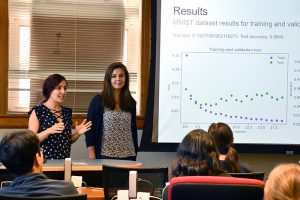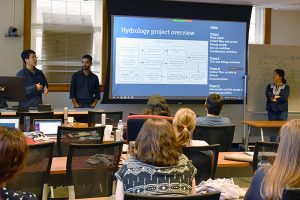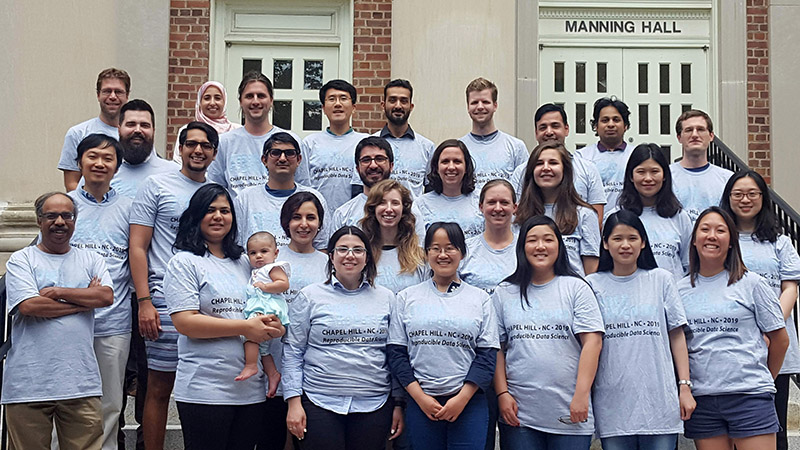NSF Cyber Carpentry Workshop helps early-career researchers learn to manage big data
The UNC School of Information and Library Science (SILS) hosted its second National Science Foundation (NSF) Cyber Carpentry Workshop this summer. The program brings doctoral students and post-doctoral associates to Carolina’s campus for two weeks to learn best practices, tools, and processes for performing end-to-end data intensive computing and data life-cycle management.
This year’s workshop drew early career researchers from institutions across county, including Virginia Tech, Texas A&M, MIT, Iowa State, and the University of Puerto Rico-Mayaguez. The project-based training helps prepare participants to facilitate and promote reproducible science and data reuse.

SILS Professor Arcot Rajasekar is the Primary Investigator for the NSF grant funding Cyber Carpentry, but the 2018 and 2019 workshops brought together several investigators from the Datanet Federation Consortium (DFC) project to help educate participants on the concepts of virtualization, automation, and federation that the DFC helped define.
Building on what they learned from the 2018 workshop, organizers streamlined the curriculum for 2019 and recruited more on-site mentors to work with students during the hands-on sessions and projects.
“The ‘homework’ over the first weekend required using most of the skills discussed the first week in an integrated way, and participants reported that this really helped them see how the various technologies we discussed hung together when they had to reproduce other scientists’ work, from containers to cloud computing infrastructure,” said Elliott Hauser, SILS PhD candidate and Cyber Carpentry 2019 facilitator. “The workshop also included more in-depth sessions on deep learning, which gave students ideas for how and when they might use this technique in their work.”

Students were also placed on teams with two other students from different backgrounds for the final project, giving them an opportunity to learn from each other and practice the collaboration and project management skills that were utilized throughout the workshop, Hauser said.
With feedback from two cohorts of workshop participants, organizers will now consider ways to standardize the training and develop online learning modules, so even more scientists can benefit.
Visit the Cyber Carpentry album on the SILS Flickr page for more photos.

